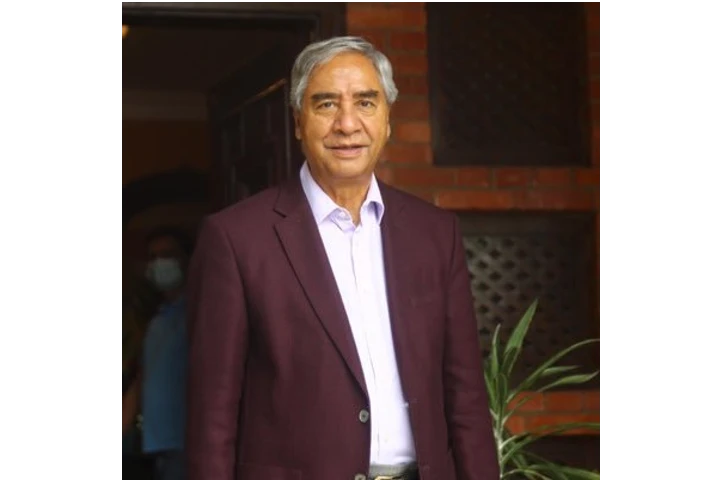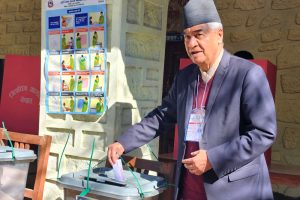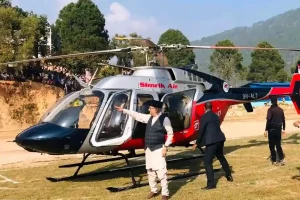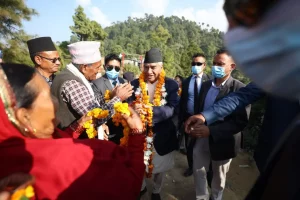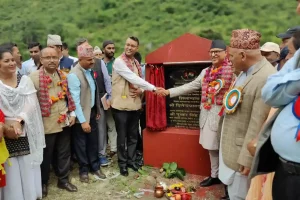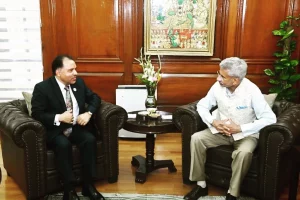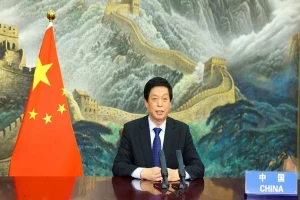Nepalese Prime Minister Sher Bahadur Deuba’s three day India visit starting today is anything but customary. "The visit will provide greater clarity in terms of what Nepal believes is the optimal road ahead as far as its role as a crucial mini state in Eurasia is concerned and the importance of a healthy Indo- Nepal relationship in this context," Bhaskar Koirala, Director of the Nepal Institute of International and Strategic Studies told India Narrative.
The focus for India and the landlocked Nepal would be on improving connectivity and economic ties. Deuba will meet Prime Minister Narendra Modi on Saturday.
Sources said that there could be "some major announcements” on connectivity as well.
“Nepal is dependent on India for trade—whether land or sea route. Trade has to be done through India as it is more cost effective. Trade through China is not cost effective and given the current global situation and rise in fuel costs, Nepal would require easier access from India,” Udaya Shumsher Rana, former minister of state for finance and member of the ruling Nepali Congress told India Narrative.
Also read: Modi says BIMSTEC unity is a must to stem global turmoil
The Land Ports Authority of India (LPAI), the nodal body under the aegis of the Ministry of Home Affairs, responsible for maintaining and managing border infrastructure is looking at upgrading the Integrated Check Posts (ICPs) at Raxaul by providing a transnational rail link between the two countries. At present, no ICP is connected by railways.
Rana added that the roads connecting Raxaul in India and Birganj in Nepal must be upgraded for easy movement of vehicles. The Raxaul-Birganj is the nodal border crossing point for the trucks carrying goods from both countries.
At present, a chunk of Nepal’s trade—both imports and exports – are routed through the Haldia and Visakhapatnam ports. Sources added that India is expected to open up more ports for Nepal.
India accounts for more than 60 per cent of Kathmandu’s overall trade volume.
“Surprisingly, in the case of India and Nepal, movement of people is easier while movement of goods is cumbersome..this is an area which needs attention..in most other cases its the opposite,” Rana added.
The two countries have already embarked on connecting inland waterways as the South Asian region looks at activating the Bangladesh-Bhutan-India Nepal (BBIN) Motor Vehicles Agreement (MVA) to boost connectivity and trade.
“In the backdrop of major and unprecedented currents in contemporary world politics , the visit to India by Deuba must be understood in light of Nepal’s quest to align itself with those currents in a fashion that not only inheres to the promotion of Nepalese interests , but to contribute in some substantial way to regional peace and stability,” Koirala added.
The timing of Deuba’s visit has also assumed significance. Exactly a week ago Chinese foreign minister Wang Yi arrived in Kathmandu. The visit failed to create any buzz with Nepal.
The Kathmandu Post, in a report titled "Chinese minister wraps up Nepal visit with mixed signals and messages" said that the visit led to confusion as Nepal issued just one statement on Wang's visit compared to multiple ones released by Beijing.
The Nepalese foreign ministry statement did not mention anything on the Belt and Road Initiative even as Kathmandu and Beijing signed the pact in 2017. Though a host of agreements between Nepal and China were signed in the presence of Wang but according to analysts those were more “customary” in nature.






